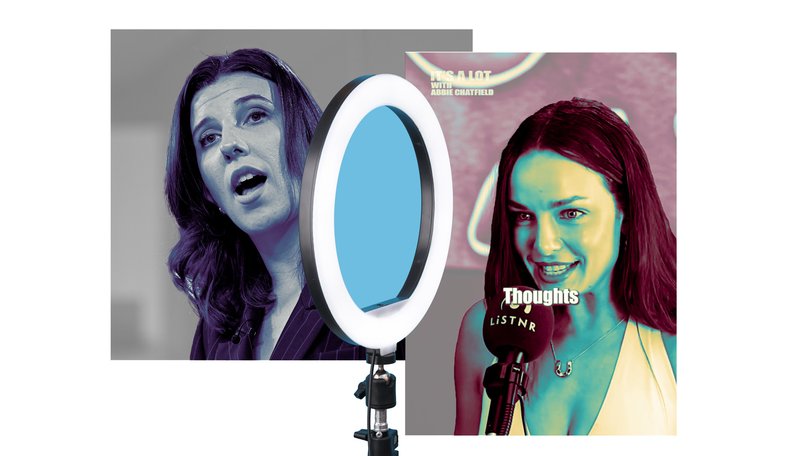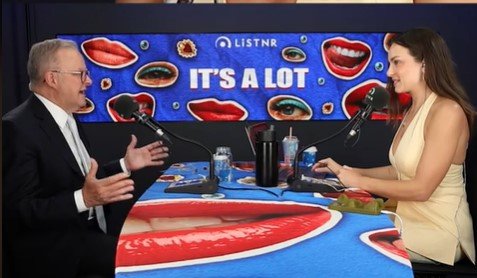JENI O’DOWD: Why influencers are actually world-class hustlers
JENI O’DOWD: Remember when being an expert meant you actually had to know something? Not anymore. These days, all it takes is a ring light, a smartphone and an over-inflated sense of confidence.

Remember when being an expert meant you actually had to know something? When careers were built on credentials, experience and a little humility?
Not anymore.
These days, all it takes is a ring light, a smartphone and the kind of confidence that would make a cult leader blush.
Sign up to The Nightly's newsletters.
Get the first look at the digital newspaper, curated daily stories and breaking headlines delivered to your inbox.
By continuing you agree to our Terms and Privacy Policy.Just ask Jake Maddock — the self-proclaimed “world-class relationship coach” who’s built a six-figure business giving out questionable relationship advice on TikTok and Instagram.
A quick glance at Maddock’s LinkedIn shows a career path that includes the military, prison system, building sites and real estate.
He’s been a prison guard, construction supervisor, licensed realtor and soldier. What he hasn’t been — ever — is a trained psychologist, therapist or counsellor.
But that hasn’t stopped him from charging thousands for “relationship coaching”. Last week, the media reported on complaints from multiple women who said they paid up to $5000 for Maddock’s so-called coaching, only to be locked out of services, insulted in messages or simply ignored.
This isn’t coaching. It’s performance. It’s what happens when hustle culture replaces real expertise, and we confuse confidence with credibility.
And it’s everywhere.
We just saw it during the Federal election campaign. While political advertising was banned on TV and radio for the 72 hours before polling day, social media remained the wild west.
Influencers like Abbie Chatfield, Hannah Ferguson and Konrad Bien-Stephens used their platforms to urge young voters to flood TikTok and Instagram with anti-Peter Dutton content.
No rules. No disclosures. No obligation to present both sides. Just ring lights and hashtags.
Technically, it wasn’t political advertising. But it was absolutely political. And it was influencing, just without the rules that the traditional media are expected to follow.

And the question is: does any of it even work?
A 2022 report by global analytics platform HypeAuditor found that influencer fraud remains widespread — fake followers, bot views and inflated engagement are still rife.
Despite this, brands and political campaigns continue to throw money at anyone with a “personal brand,” assuming that reach equals impact.
However, studies show that influencers are far better at brand discovery, such as lip gloss and protein powder, than at shifting actual behaviour.
Especially when it comes to big decisions like buying a house or casting a vote.
That same illusion of influence was displayed the other night at a luxury car event I attended.
It was the kind of launch that should attract serious buyers, business leaders and journalists from major media organisations.
Instead, it was all sequins and tutus, dramatic poses and glossy feeds — a parade of influencers who looked like they’d stepped out of a fashion shoot, but in reality couldn’t possibly afford the $150,000 vehicle being unveiled.
And yet they were there, phones out, tagging brands and chasing relevance.
When did we become so obsessed with looking like success instead of actually achieving it?
That same obsession with optics has quietly gutted something far more important: journalism.
It might seem harmless — a few Instagram posts and branded gift bags. But this obsession with image over substance isn’t just reshaping luxury marketing — it’s reshaping the media, too.
As marketing budgets are increasingly spread across social media, influencers, podcasts and digital platforms — often with zero regulation — traditional newsrooms are left with shrinking resources.
The big names still exist, but the teams behind them are smaller, budgets are tighter, and the time to pursue real investigations is harder to find.
Influencing isn’t just a trend anymore — it’s big business. There are now entire industries built around helping people become influencers: management agencies, paid workshops, personal branding coaches and even academic-style courses.
We’ve professionalised the art of being followed. But the goal isn’t to inform, investigate or entertain — it’s to monetise attention.
And the more curated, polished and click-driven the persona, the better. We’re not building knowledge or credibility anymore. We’re creating characters.
What’s so wrong with being ordinary? With living a quiet life that isn’t filmed, filtered or monetised?
Maybe the most radical thing you can be in 2025 is not a brand, just an ordinary person. Qualified, decent and quietly competent.
And the next time someone with no credentials calls themselves “world class,” we should all ask: in what, exactly?
